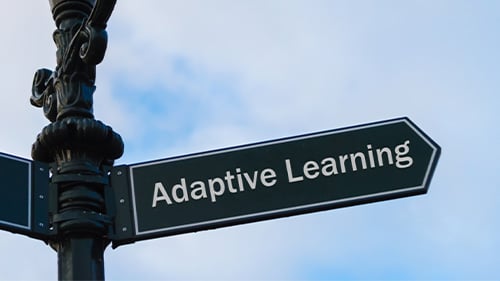From Scores to Action: Turning Diagnostic Results into Daily Routines
When the test results come in, teachers face the same key question: Now what? Turning diagnostic data into targeted instruction can seem...
AP & Honors Mathematics
Explore Wiley titles to support both AP and Honors mathematics instruction.
Literacy Skills & Intensive Reading
Connections: Reading – Grades 6–12
Empower student success with a proven intensive reading program that develops strong reading skills in striving readers.
Drama, Speech & Debate
Basic Drama Projects 10th Edition
Build students’ confidence and competence with comprehensive, project-based theatre instruction.
Literature
Connections: Literature
Support learners as they study dynamic, relevant texts and bring the richness of diverse voices to students through literature.
Literature & Thought
Develop critical thinking, reading, and writing across literacy themes, genres, historical eras, and current events.
Language Arts
Vocabu-Lit® – Grades 6–12
Help students build word power using high-quality contemporary and classic literature, nonfiction, essays, and more.
Connections: Writing & Language
Help students develop grammar, usage, mechanics, vocabulary, spelling, and writing and editing skills.
Reading/English Language Arts
Measuring Up to the English Language Arts Standards
Incorporate standards-driven teaching strategies to complement your ELA curriculum.
English Language Learners
Measuring Up for English Language Learners
Incorporate research-based best practices for ELLs with an approach that includes a focus on language acquisition strategies.
Mathematics
Measuring Up to the Mathematics Standards
Incorporate standards-driven teaching strategies to complement your mathematics curriculum.
Foundations
Measuring Up Foundations
Help students master foundational math skills that are critical for students to find academic success.
Science
Measuring Up to the Next Generation Science Standards
Give students comprehensive NGSS coverage while targeting instruction and providing rigorous standards practice.
Assessment
Measuring Up Live
Deliver innovative assessment and practice technology designed to offer data-driven instructional support.
For a better website experience, please confirm you are in:
Every student has a unique set of strengths and weaknesses.
Some student may excel in STEM subjects, while others may love literature and writing. Yet, think about how the average school day is divided up: 55 minutes for English, 55 minutes for gym, 55 minutes for science, as if every student needs the exact same amount of time and support to grasp each and every subject.
As human beings, we just don’t work that way. Educators know it better than anyone. Their students learn at different speeds. And the variety of skill levels in a classroom make it difficult to personalize learning and reach every student. Often, we see the advanced student bored because they’re not being challenged and the struggling student lost because the content is too difficult or quick-paced.
This linear approach to teaching, giving equal attention to every subject and moving students along at the same pace, is not practical. And it may not be the best way for preparing students to succeed on those rigorous end-of-year assessments.
More and more, what students need is an adaptive learning approach—an approach that adapts itself to them, with their individual strengths and weaknesses in mind.
Adaptive learning gives students the opportunity to spend time on those concepts and skills needing additional support and instruction. Adaptive learning tools are often technology-based, using this technology to track student progress and adapt lessons to the skills and content students need. Students move quickly through what comes easily to them, but spend more time on what doesn’t.
Adaptive learning doesn’t just empower students, though. It empowers teachers. With adaptive learning, teachers can meet students at their precise learning level. Scores come back in real-time, while the student is working, which means that a teacher knows—almost immediately—which students are struggling and on what specific concepts and teachers can then remediate or reteach an individual student, small group or the class as a whole.
The insight a teacher gains, thanks to adaptive learning, enables that teacher to offer more individualized help or to modify instruction or explain in greater detail.
Ultimately, adaptive learning means greater student confidence and the potential for stronger performance on state assessments. In fact, according to one recent study, students showed a 27% pass-rate increase, a 9% retention increase, and a 10% increase in final grade average, thanks to adaptive learning usage in their instruction. Another study revealed a nearly 50% increase in students who received an A or a B grade. [1]
As we developed Measuring Up Live 2.0, we took into account the profound importance and the practical challenges of nurturing 21st century skills in the classroom. To improve students’ skills, knowledge, and readiness for assessment, our research-based, adaptive, and differentiated solution provides rigorous content and scaffolded support and puts success into students’ hands. Robust reporting is at the heart of the program, giving educators the tools they need to track all students in their classroom, target instruction, and prescribe practice to meet the skills and standards each student needs, all to support standards mastery and assessment success.
Want to learn more about how you can use the Measuring Up Live 2.0 adaptive learning to improve student assessment? Watch This!
Sources:
[1] http://acrobatiq.com/what-student-outcomes-say-about-adaptive-learning/

When the test results come in, teachers face the same key question: Now what? Turning diagnostic data into targeted instruction can seem...

Spring is in the air, and school children all across the nation are entering the last leg of the academic year. But before the final bell rings, many...

Every educator knows the look: a student who has put in the work, suddenly shutting down the moment a test appears. High-stakes assessments can...

Summer is almost here. For many, it’s a time to relax and leave schoolwork worries behind. However, by the time school starts up again in the fall,...

An exit ticket can be an effective way to determine if students are understanding what they are being taught. They provide immediate feedback, while...

ELPs provide them with a fun learning environment and create a sense of belonging. These learning programs are also a productive way to support...

Taking high-stakes assessments can be a stressful experience for students. But the right practice tools can help alleviate the pressure and even make...

Educational studies have proven time and time again that learning loss is a real phenomenon.

December is a unique month in the classroom. Energy is high, schedules are unpredictable, and instructional time can feel fragmented. But it’s also...

As an educator, there might be one question you dread above all others: “But when am I ever going to use this?”

Every spring, standardized testing can feel like a looming mountain for both students and teachers. The challenge is real: how do we prepare students...

